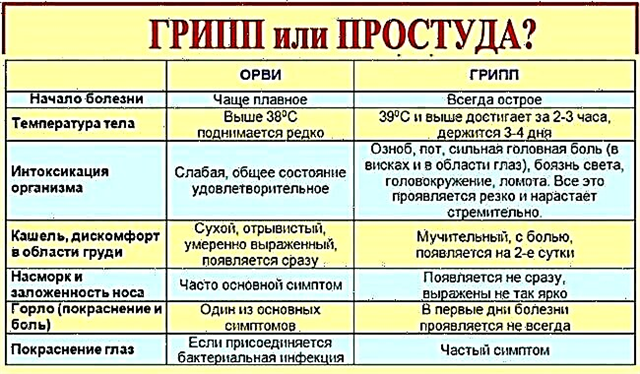Sea water is a sodium chloride solution with a high concentration of trace elements and minerals. It is widely used in official and folk medicine for irrigation (irrigation) of the nasopharynx with the development of colds. The components of the drug have a disinfectant and decongestant effect, which helps to relieve the symptoms of rhinitis, sinusitis, sinusitis, etc.
 Rinsing the nose with seawater is one of the key components of the topical treatment of ENT diseases. Cleansing the mucous membrane from pathological secretions allows you to eliminate the vast majority of pathogens in the nasopharynx. Regular carrying out of the procedure leads to an increase in immunity and a speedy recovery.
Rinsing the nose with seawater is one of the key components of the topical treatment of ENT diseases. Cleansing the mucous membrane from pathological secretions allows you to eliminate the vast majority of pathogens in the nasopharynx. Regular carrying out of the procedure leads to an increase in immunity and a speedy recovery.
Biochemical composition
The composition of sea salt contains much more useful components than ordinary table salt (sodium chloride). The active components of the product normalize metabolic processes in tissues, as a result of which the microflora in the ENT organs is restored. Regular use of saline solution increases tissue reactivity, which helps to destroy pathogenic microorganisms in the ciliated epithelium.
Sea water for rinsing the nose is a safe drug that is used to eliminate inflammation in the nasopharynx. The therapeutic properties of the solution are due to the unique chemical composition, which includes:
- sulfur;
- magnesium;
- chlorine;
- bromine;
- hydrogen;
- calcium.
Sea water has a pronounced antibacterial effect, which makes it possible to use it in the treatment of purulent inflammation in the paranasal sinuses.
Irrigation of the nose helps to increase tissue turgor and regeneration. Thus, swelling in the mucous membrane decreases, thereby facilitating nasal breathing and accelerating the healing process.
How does sea water work?
Saline solutions are effective drugs that help eliminate excess moisture from inflamed mucous membranes. During irrigation in the nasopharynx, osmotic processes are observed caused by the contact of the ciliated epithelium with a concentrated saline liquid. The intercellular fluid contained in the mucous membranes tends to equalize the concentration of salts in seawater, for due to which excess fluid is eliminated from the tissues.
due to which excess fluid is eliminated from the tissues.
Unilateral diffusion leads to a decrease in swelling in the nasopharynx, which entails an increase in the internal diameter in the nasal passages. This facilitates the evacuation of mucus accumulated in the nasopharynx and facilitates breathing. Due to its antiseptic and antiphlogistic effect, regular therapeutic procedures accelerate the regression of inflammation in the ciliated epithelium.
Important! Overuse of washes can cause the mucous membrane to dry out, which negatively affects local immunity.
Medicinal properties
How to dilute seawater for rinsing the nose? Before you understand the intricacies of preparing a solution, you need to determine the spectrum of action of the drug. Isotonic solutions are used in the manufacture of most nasal drops, inhalers, and nasal irrigations. The popularity of sea salt is due to the following therapeutic properties:
- normalizes the work of the glands in the ciliated epithelium, which leads to the suppression of mucus hypersecretion;
- reduces the viscosity of the liquid secretion, as a result of which the process of its evacuation is accelerated;
- prevents the spread of inflammatory reactions, which prevents the development of serious complications;
- reduces the activity of pathogens in the nasopharynx, thereby increasing local immunity;
- improves tissue trophism, which helps to accelerate regeneration processes.
Important! The high concentration of salts in the solution leads to a violation of the acid-base balance in the nasal cavity.
It is advisable to use a natural antiseptic as a topical preparation in the treatment of ARVI, allergic rhinitis, sinusitis, laryngotracheitis, sinusitis and other ENT diseases. The composition of seawater does not contain dyes or synthetic additives, which allows it to be used in pediatric therapy.
Preparation
The finished drug is dispensed in pharmacies without a prescription, which is due to the practical absence of contraindications to its use. If necessary, salt water can be made independently, but only if certain conditions are met. How to make seawater for rinsing your nose?
 only boiled or heated bottled water should be used as a solvent;
only boiled or heated bottled water should be used as a solvent;- before use, the finished product must be filtered to cleanse it of undissolved salt crystals;
- for the preparation of sea water, it is more expedient to use fine-grained salt with a high iodine content.
In case of severe nasal congestion, ½ tsp can be added to 250 ml of the drug. soda, which will help eliminate puffiness.
Water with a low salt concentration can be used to treat children from 2 months of age. However, before carrying out the procedure, it is worth consulting with a pediatrician to rule out the likelihood of complications. In particular, non-observance of the rules of nasopharyngeal irrigation often leads to the leakage of water into the Eustachian tube, which is fraught with the development of otitis media.
Recipes
Salt water helps to gently cleanse the nasal mucosa of mucus and pathogens, thereby speeding up the healing process. But in order to achieve the desired therapeutic effect, the concentration of salts in the water must be taken into account. The concentrated preparation can provoke severe irritation and inflammation of the mucous membranes, which leads to a deterioration in health.
How to prepare seawater for nasal rinsing?
- to eliminate rhinitis, dissolve 1 teaspoon of salt in ½ liter of hot water;
- with a sluggish rhinitis, dissolve 1 teaspoon of salt in 1 glass of boiled water;
- to cure sinusitis, dilute 2 teaspoons of sea salt in 1 liter of hot water.
For irrigation of the nasal mucosa in preschool children, less concentrated sea water should be used. To prepare the drug, it is advisable to take more than 1/3 teaspoon of salt per 250 ml of water.
Washing technique
Precautions must be taken during irrigation to prevent fluid from leaking into the ear tube. In pediatric therapy, it is more advisable to use a pipette to cleanse the nasal passages. To clear mucus from the nose, put 3-4 drops of the drug into each nostril and after 30 seconds ask the child to blow out the accumulated mucus.
To eliminate rhinitis in adults, a syringe, syringe or neti-pot is used as an irrigator. How to rinse your nose with seawater?
- draw a heated solution into the syringe;
- turn your head to the side and lean forward a little;
- after taking a deep breath, hold on to exhale;
- insert the tip of the syringe into the upper nostril;
- pour liquid into the nasal canal (until it starts pouring out of the second nostril);
- blow out accumulated discharge from the nose;
- turning your head to the other side, clear the second nostril of mucus.
Important! It is undesirable to resort to irrigation of the nasal cavity in the presence of ulcers and microdamages on the mucous membrane.
Specialists' comments
Despite the detailed nasal rinsing techniques, more and more patients turn to otolaryngologists with the problem of ear congestion.Failure to comply with the rules of the therapeutic procedure leads to the penetration of fluid into the Eustachian tube, as a result of which inflammation occurs in the middle ear cavity. To prevent complications, while cleansing the nasal passages from mucus, it is advisable to pay attention to the following points:
- the nostrils should be flushed alternately;
- you can not throw your head back;
- it is undesirable to draw in water with nostrils;
- the remains of the solution must be blown out through the nose;
- it is impossible to inject liquid into the nasal canal under high pressure.
Remember! Irrigation of the nasopharynx is possible only in conditions of moderate swelling of the nasal passages.
The effectiveness of the procedure is greatly reduced in case of obstruction of the nasal passages. To eliminate puffiness, a vasoconstrictor drug should be instilled 10-15 minutes before rinsing the nose.
Overview of medications
Sea water is used as the basis for the production of many medicines suitable for nasopharyngeal irrigation. The systematic use of solutions leads the paranasal sinuses and canals away from pathological secretions and pathogenic flora. Effective seawater-based medications include:
- "Marimer" - normalizes the state of the ciliated epithelium and accelerates the elimination of allergens, which leads to the restoration of physiological processes. Reduces the viscosity of mucus, which facilitates its evacuation from the nasal passages. It is used in the treatment of viral and bacterial inflammation of the ENT organs;
- "Aqualor" is a concentrated saline solution that accelerates the liquefaction of viscous secretions in the nasopharynx. It is used for infectious and inflammatory processes in the ENT organs, provoked by bacterial and viral pathogens;
- Aqua Maris is an isotonic solution that enhances the restoration of mucociliary clearance. It is used in the treatment of inflammatory processes in the paranasal sinuses and nasal canals.
All of the above drugs can be used in pediatric therapy, as well as for the treatment of women during gestation. They practically do not cause side reactions and complications if the rules for nasopharyngeal irrigation are observed.

 only boiled or heated bottled water should be used as a solvent;
only boiled or heated bottled water should be used as a solvent;

